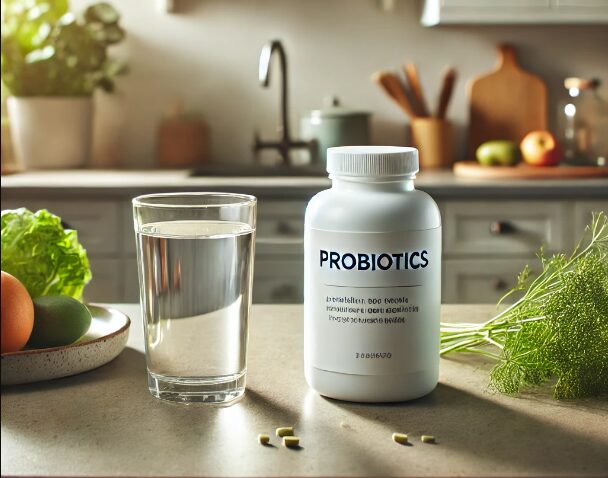Maintaining a robust immune system is critical for overall health and well-being. As adults age, their bodies require key nutrients to sustain optimal immune function. This guide explores the essential vitamins, minerals, and dietary practices that can help bolster immunity, prevent illnesses, and promote long-term vitality.
The Role of Nutrients in Immunity
A well-functioning immune system depends on a variety of nutrients, each playing a unique role in the body’s defense mechanisms. Nutrients like vitamins, minerals, and antioxidants support the immune system by helping the body produce white blood cells, repair tissues, and fight inflammation.
These nutrients work synergistically to bolster the body’s innate and adaptive immune systems. While the innate immune system provides immediate defense against pathogens, the adaptive immune system develops a targeted response. Nutrients like zinc and selenium are vital for cellular repair and the production of immune cells, while vitamins C and E protect immune cells from oxidative damage. Ensuring a balanced intake of these nutrients is essential for maintaining immune resilience and overall health, particularly during times of stress or illness.
● Vitamin C
Vitamin C is widely known for its immune-boosting properties. It enhances the production of white blood cells that fight infections, supports the skin’s barrier function, and acts as an antioxidant to protect cells from damage caused by free radicals. Natural sources include citrus fruits, strawberries, and bell peppers.
● Vitamin D
Often referred to as the “sunshine vitamin,” vitamin D plays a crucial role in immune regulation. It helps activate immune cells and supports the body’s ability to fend off pathogens. Sun exposure and fortified foods like dairy products are common sources, but supplements are often necessary, especially during the winter months.
● Zinc
Zinc is essential for immune cell development and communication. It supports the body’s ability to fight off infections by boosting the function of white blood cells and reducing inflammation. Oysters, beef, and legumes are rich sources of zinc.
● Vitamin A
Vitamin A contributes to the production of antibodies, which help neutralize harmful pathogens. It also maintains the integrity of mucosal tissues in the respiratory and gastrointestinal tracts, acting as a physical barrier against infections. Vitamin A-rich foods include carrots, sweet potatoes, and spinach.
● Vitamin E
A powerful antioxidant, vitamin E protects immune cells from oxidative stress and promotes their function. Nuts, seeds, and vegetable oils are rich sources of vitamin E, making them valuable components of an immune-boosting diet.
INSIDER TIPS: Nutrilite offers a variety of multivitamins, including gummies and tablets, that contain essential vitamins and minerals that our bodies need along with powerful plant nutrients. LEARN MORE
Minerals That Matter
Minerals such as selenium and iron also play crucial roles in immune function. Selenium acts as an antioxidant, helping to lower oxidative stress, while iron is necessary for oxygen transport in the blood and supports immune responses.
“Zinc is another essential mineral that strengthens the immune system. It plays a pivotal role in the development and function of immune cells, such as neutrophils and T-cells, which are key to fighting off infections. Zinc also supports the body’s ability to heal wounds and is crucial for maintaining skin integrity, which acts as the first line of defense against pathogens. A deficiency in zinc can lead to a weakened immune response and increased susceptibility to illnesses.”
● Selenium
Selenium helps reduce inflammation and enhances immune system activity. It also boosts the body’s ability to defend itself against viruses. Brazil nuts, eggs, and seafood are excellent sources of selenium.
● Iron
Iron supports the production of hemoglobin, which transports oxygen to tissues and organs. Adequate iron levels ensure that immune cells function effectively. Iron-rich foods include red meat, lentils, and fortified cereals.
INSIDER TIPS: Nutrilite offers a variety of multivitamins, including gummies and tablets, that contain essential vitamins and minerals that our bodies need along with powerful plant nutrients. LEARN MORE
Quick Facts About Building Immunity
○ A healthy diet filled with fruits, vegetables, lean proteins, and whole grains is vital for immune support.
○ Vitamin C helps increase white blood cell production, which is key for fighting infections.
○ Zinc is especially important during cold and flu season, as it can reduce the severity and duration of symptoms.
○ Vitamin D deficiency is common, especially in colder climates, and can weaken immune responses.
○ Probiotics from fermented foods like yogurt and sauerkraut enhance gut health, which is closely linked to immune function.
○ Consuming antioxidant-rich foods like berries and leafy greens protects cells from damage and reduces inflammation.
Q&A
1. Why is vitamin C so important for immunity?
Vitamin C boosts the production of white blood cells, which help fight infections. It’s also an antioxidant, protecting immune cells from damage.
2. How much vitamin D should I take for immune support?
Adults should aim for 600-800 IU of vitamin D daily. Supplements are often necessary, especially during winter or in less sunny regions.
3. Are there plant-based sources of zinc?
Yes, legumes, seeds, and nuts provide zinc, though plant-based sources are less bioavailable than animal sources.
4. How does gut health influence immunity?
The gut houses a large portion of the immune system. Probiotics support beneficial bacteria, which help regulate immune responses.
5. Can vitamin E supplements enhance my immunity?
Vitamin E supports immune cell function and acts as an antioxidant. However, it’s best to get this nutrient from food sources like nuts and seeds.
6. What role does iron play in the immune system?
Iron supports immune function by aiding in oxygen transport, which is essential for the proper function of immune cells.
7. Should I take selenium supplements for immunity?
While selenium is important, it’s best to get it from food sources like Brazil nuts, eggs, and fish, as too much selenium can be harmful.
8. What lifestyle factors contribute to a strong immune system?
In addition to nutrition, regular exercise, adequate sleep, stress management, and hydration are critical for maintaining a healthy immune system.
9. How does aging affect immunity?
As we age, the immune system becomes less effective. Nutrient-rich diets and supplements can help compensate for this decline in function.
10. Is it safe to take multiple immune-boosting supplements?
While many immune-boosting supplements are safe, it’s essential to consult a healthcare professional to avoid overdosing on certain vitamins or minerals.
INSIDER TIPS: Nutrilite offers a variety of multivitamins, including gummies and tablets, that contain essential vitamins and minerals that our bodies need along with powerful plant nutrients. LEARN MORE
Conclusion
Building stronger immunity in adults requires a combination of essential nutrients and healthy lifestyle practices. Vitamins like C, D, and E, along with minerals such as zinc and selenium, play vital roles in supporting immune responses and protecting the body from infections. Incorporating nutrient-rich foods, along with regular exercise and adequate sleep, can help maintain a robust immune system throughout adulthood.
Do you know which Nutrilite™ multivitamin is right for you?
For a wider variety of plant-based nutrients, including vitamins, supplements, healthy eating, weight management, heart health, sports nutrition, and energy products, all designed to support your journey to health and well-being, please Visit: Harness the power of plants.
Recommended reading for Essential Nutrients to Boost Your Child’s Immune System
“Essential Vitamins for Toddlers: Boost Your Child’s Immune System” (Read Time: 6 Minutes)
You can visit the NIH for extended Knowledge and Understanding of Dietary Supplements.





“This article is an absolute must-read! It offers a clear and informative breakdown of the essential nutrients that keep our immune systems strong. The insights on how to incorporate these nutrients into our daily routine are incredibly helpful. Definitely worth sharing with anyone looking to prioritize their health!”
[…] “Building Stronger Immunity: Essential Nutrients for Adults“(Read Time: 5 Minutes) […]
[…] “Building Stronger Immunity: Essential Nutrients for Adults“(Read Time: 5 Minutes) […]
[…] “Building Stronger Immunity: Essential Nutrients for Adults“(Read Time: 5 Minutes) […]
[…] “Building Stronger Immunity: Essential Nutrients for Adults“(Read Time: 5 Minutes) […]
[…] “Building Stronger Immunity: Essential Nutrients for Adults“(Read Time: 5 Minutes) […]
[…] “Building Stronger Immunity: Essential Nutrients for Adults“(Read Time: 5 Minutes) […]